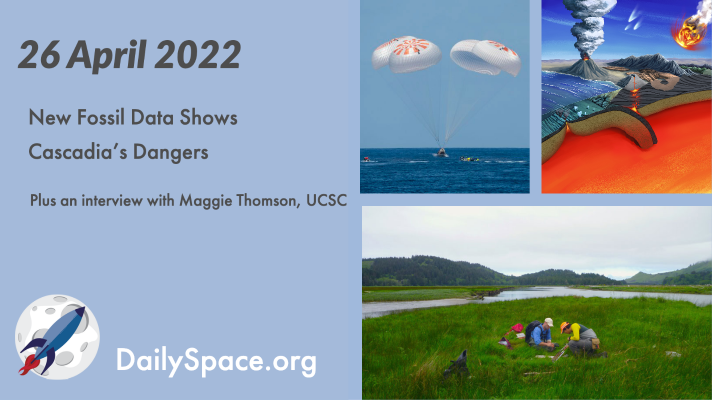
Apr 27, 2022 | Asteroids, Astrobiology, Climate Change, Crewed Space, Daily Space, Earth, Guest Interview, Lucy, Mars, OSIRIS-REx, Rockets, Space China, Spacecraft, SpaceX, Starlink
An analysis of sediment core samples taken at the Salmon River Estuary in Oregon provides evidence that the massive 1700 Cascadia earthquake caused 15 meters of slip along the shoreline, which lead to over a meter of coastal subsidence. Plus, all the rocket launches, a few mission updates, making Mars bricks with urea, and an interview with Maggie Thompson from UC Santa Cruz about using methane as a biosignature.
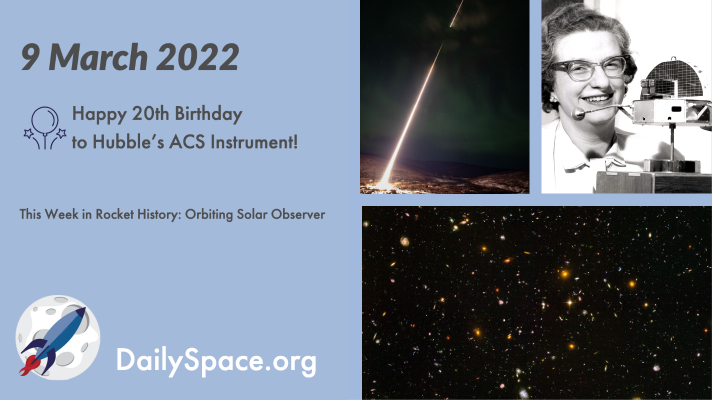
Mar 10, 2022 | Daily Space, Earth, Random Space Fact, Rockets, Space China, Space History, Spacecraft, SpaceX, Starlink, Stars, The Sun
The Advanced Camera for Surveys instrument onboard the Hubble Space Telescope is celebrating twenty years of service this week. Plus, a new look at an old lunar rock, gas rings around an aging star, all the rockets from around the world, and this week in rocket history, we look back at the 1962 Orbiting Solar Observatory, led by Nancy Grace Roman.
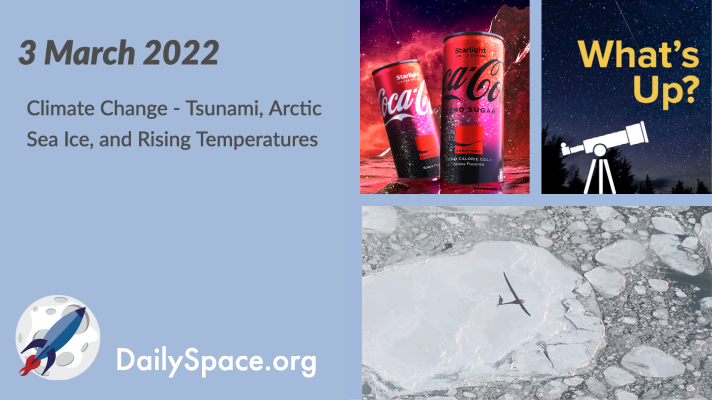
Mar 4, 2022 | Climate Change, Daily Space, Earth, ESA, Galaxies, Neutron Stars / Pulsars, Review, Rockets, Sky Watching, Spacecraft, SpaceX, Starlink, Stars
In the latest climate change news, ancient underwater landslides could help us understand tsunami risks in the Middle East, NASA now has a ‘Vanilla’ ice drone to study the Arctic, and lake temperatures are rising. Plus, we bring you joy with this week’s What’s Up and a review of Starlight Coke.
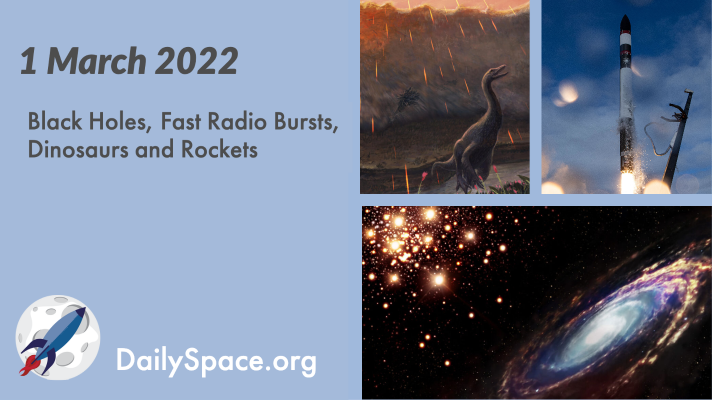
Mar 2, 2022 | Asteroids, Black Holes (Stellar), Crewed Space, Daily Space, Earth, Fast Radio Bursts, Neutron Stars / Pulsars, Rocket Lab, Rockets, Space China, SpaceX, Starlink, Supermassive Black Holes
As we return from our mini-break, we bring you some highlights of stories that happened while we were away, including black holes spiraling toward each other, the possible origin of a fast radio burst, and more information on the demise of the dinosaurs. Plus, Erik Madaus brings us updates on quite a few rocket launches.
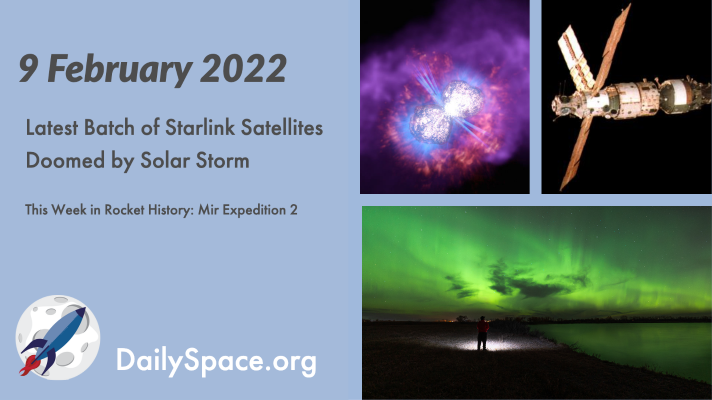
Feb 10, 2022 | Asteroids, Crewed Space, Daily Space, Random Space Fact, Space History, Spacecraft, SpaceX, Starlink, Supernovae Remnants
SpaceX launched another 49 Starlink satellites last week, but a geomagnetic storm caused by solar activity kept the satellites offline, and 40 of them failed to reach their final orbits after exiting safe mode. They are now deorbiting and breaking up in the Earth’s atmosphere. Plus, asteroid systems, Eta Carina, and this week in rocket history, we look back at Mir Expedition 2.
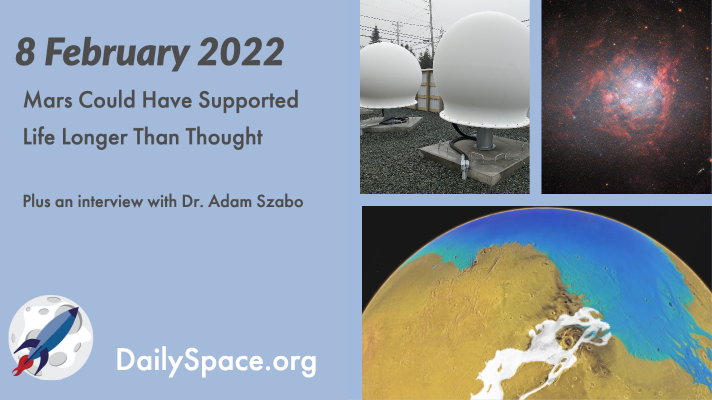
Feb 9, 2022 | Daily Space, Galaxies, Guest Interview, Mars, Rockets, ROSCOSMOS, Saturn, Soyuz, Spacecraft, SpaceX, Starlink, The Sun
A NASA-funded simulation of early Mars revealed that the climate three billion years ago on the red planet was very similar to Earth now, with a stable ocean in the northern hemisphere. This new timeline would have given life another 500 million years to develop. Plus, a dwarf galaxy, Saturn’s aurorae, a Soyuz launch, and an interview with Dr. Adam Szabo, mission scientist for the Parker Solar Probe.








 We record most shows live, on Twitch. Follow us today to get alerts when we go live.
We record most shows live, on Twitch. Follow us today to get alerts when we go live.